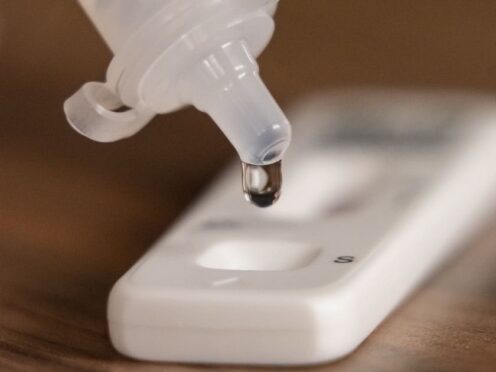Patients are staying in hospital longer due to physiotherapy facilities that were repurposed during the Covid-19 pandemic not being returned to use, an inquiry has heard.
Claire Ronald, a senior negotiating officer with the Chartered Society of Physiotherapy, said gyms and other rehabilitation spaces in some hospitals are now being used for additional beds or storage, and some hydrotherapy pools closed during the pandemic have not reopened due to cost pressures.
Giving evidence to the Scottish Covid-19 Inquiry on Thursday, the former physiotherapist said this risks costing more in the long run, as it results in patients having to spend longer in hospital.
She said: “If you want to improve patient flow through a hospital you need to look at how you’re rehabilitating them, and you need to have that investment in rehabilitation and have it meaningful.
“You’re not going to get patients out of hospital unless you improve their mobility, improve their function, and return as much of that mobility and function as possible, and that’s where physiotherapy is key and it’s where our rehabilitation spaces are also key.
“There’s no point having amazingly skilled physiotherapists trying to do a job at a bedside or trying to rehabilitate someone’s balance on an airflow mattress.”
Ms Ronald also told the inquiry that poor workforce planning means there are not enough graduates coming through to fill vacancies caused by increasing numbers of staff retiring early since the pandemic.
She said the stress caused by the pandemic, when many physiotherapists were deployed to Covid-19 wards and worked hands-on with Covid patients – with many struggling to obtain appropriate PPE – may have contributed to more staff opting to take early retirement.
This was echoed in evidence from Annette Holliday of the Unite union, who told the inquiry that since 2021, staffing pressures on health visitors, who support families with young children in their homes, has significantly increased.
The registered nurse and health visitor told the inquiry: “Some staff retired. Other staff reduced their hours. Or people went off. I think people were finding work-related stress quite significant.
“It feels like the pace of the work has really escalated, and the complexity of families has escalated since the pandemic.
“There’s not really been the reinvestment back into health visiting that allows you to support the work that you’d want to do.”
She said staff absences have seen health visitors having to cover for each other, disrupting the “continuity” of the relationship they have with families and so reducing the level of support they provide.
Today's session has now started. We will first hear evidence from Annette Holliday of @unitetheunion.
Watch the broadcast online:https://t.co/gdItXvbBnt
— Scottish COVID-19 Inquiry (@covidinquirysco) April 25, 2024
“We found during the pandemic that [continuity] was disrupted and since the pandemic it feels impossible to deliver, and some of that is because we’re not funding health visitors the way we need to,” Ms Holliday said.
“We have an aspiration in Scotland that Scotland will be the best place to grow up, and I’m not seeing the evidence of that happening. I’m seeing a decline in those things happening.”
Both witnesses also described a lack of effective guidance, particularly early in the pandemic, as a source of anxiety for staff, with Ms Holliday saying her team had been expected to carry on “business as usual” in the first few weeks of the pandemic while the country was locking down around them.
She told the inquiry: “People were very anxious about that, and people started to feel very stressed around what they were perhaps walking into. People were very worried about contracting Covid.”
A Scottish Government spokesperson said: “Our deepest sympathies go out to all those who lost a loved one during the pandemic.
“The Scottish Government is committed to responding to both the Scottish Covid-19 and UK Covid-19 inquiries, as learning lessons from the pandemic is vital to prepare for the future.
“It would be inappropriate to comment on the detail of evidence being considered by either inquiry while hearings are ongoing.”
The inquiry continues.
